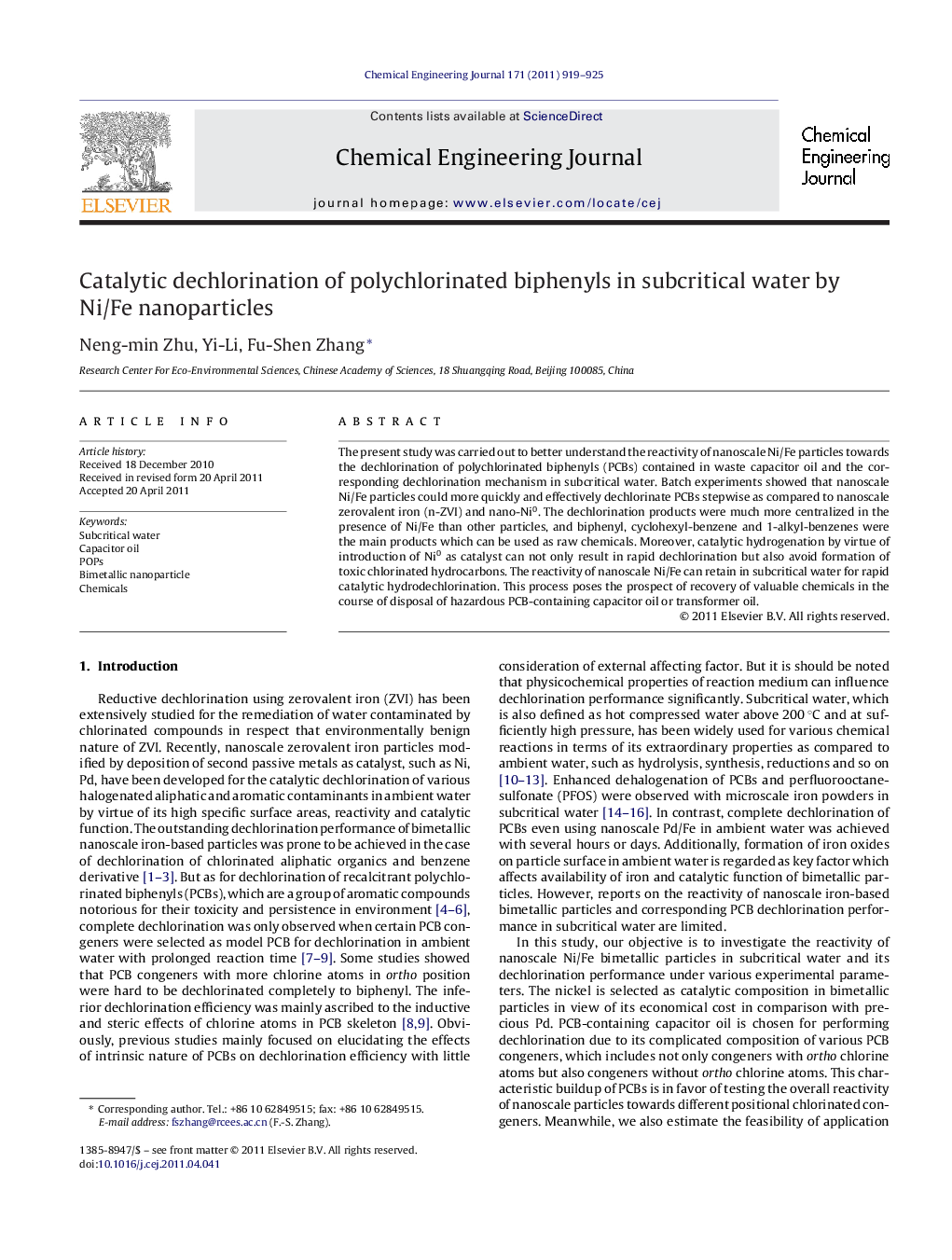| Article ID | Journal | Published Year | Pages | File Type |
|---|---|---|---|---|
| 150883 | Chemical Engineering Journal | 2011 | 7 Pages |
The present study was carried out to better understand the reactivity of nanoscale Ni/Fe particles towards the dechlorination of polychlorinated biphenyls (PCBs) contained in waste capacitor oil and the corresponding dechlorination mechanism in subcritical water. Batch experiments showed that nanoscale Ni/Fe particles could more quickly and effectively dechlorinate PCBs stepwise as compared to nanoscale zerovalent iron (n-ZVI) and nano-Ni0. The dechlorination products were much more centralized in the presence of Ni/Fe than other particles, and biphenyl, cyclohexyl-benzene and 1-alkyl-benzenes were the main products which can be used as raw chemicals. Moreover, catalytic hydrogenation by virtue of introduction of Ni0 as catalyst can not only result in rapid dechlorination but also avoid formation of toxic chlorinated hydrocarbons. The reactivity of nanoscale Ni/Fe can retain in subcritical water for rapid catalytic hydrodechlorination. This process poses the prospect of recovery of valuable chemicals in the course of disposal of hazardous PCB-containing capacitor oil or transformer oil.
Graphical abstractInfluence of treatment time on PCBs dechlorination. Other conditions: T = 330 °C, mparticles = 0.2 g.Figure optionsDownload full-size imageDownload as PowerPoint slideHighlights► Reactivity of nano-Ni/Fe can be maintained due to the resistance of Ni0 to oxidation in subcritical water. ► Biphenyls as intermediates competed with undechlorinated PCBs for hydrogen species. ► Competition for hydrogen species resulted in suspension of PCB dechlorination. ► Biphenyls may be considered as valuable chemicals for reuse due to high biphenyl yield ratio.
